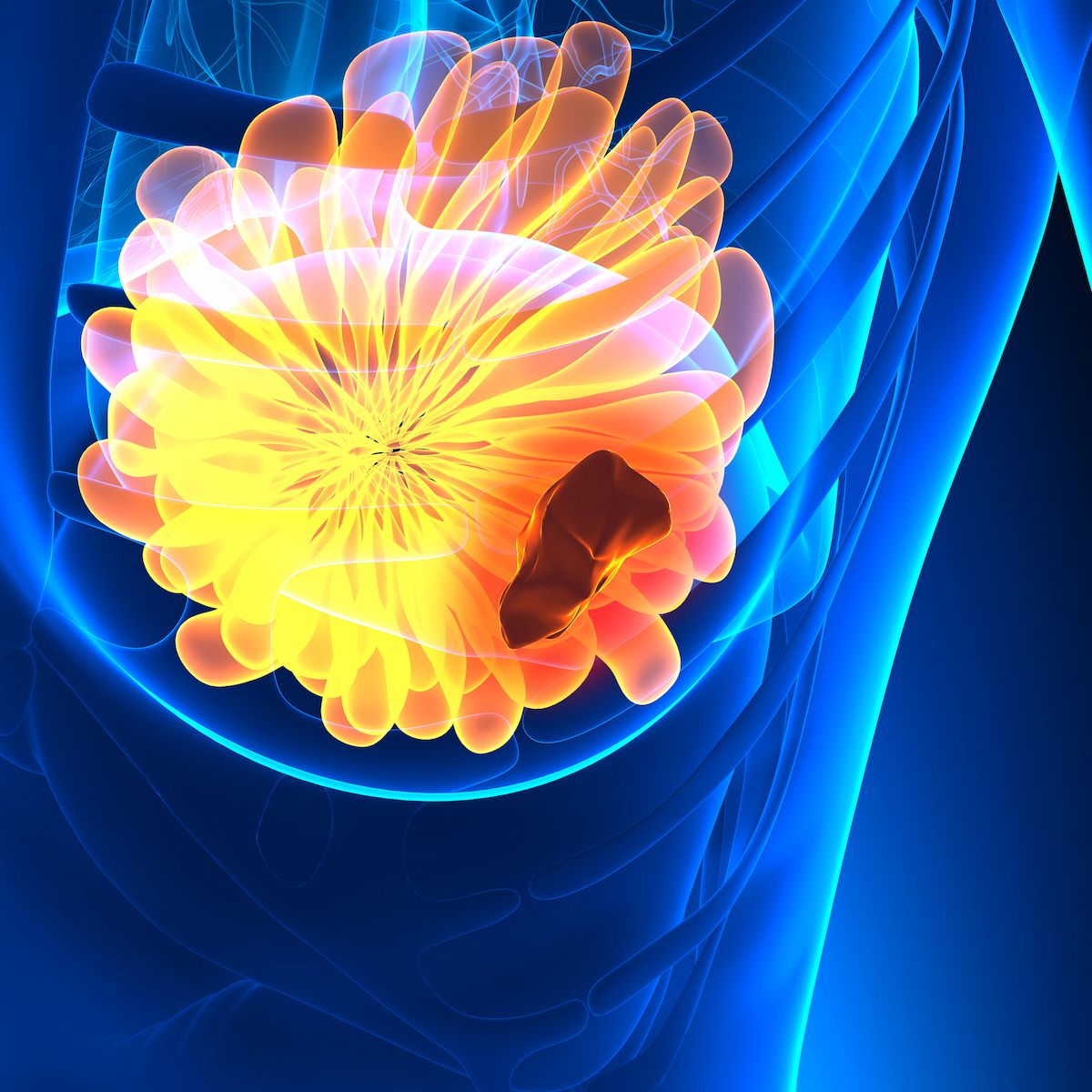XMT-1660 Earns Fast Track Designation for HER2–Low/Negative Breast Cancer
The World Health Organization has approved emiltatug ledadotin as XMT-1660’s international nonproprietary name.
The World Health Organization has approved emiltatug ledadotin as XMT-1660’s international nonproprietary name.

The FDA has granted B7-H4–targeting Dolasynthen anti-body drug conjugate (ADC) XMT-1660 fast track designation as a treatment for patients with advanced or metastatic HER2-low or HER2–negative breast cancer who have received a prior topoisomerase-1 (topo-1) inhibitor, according to a news release from the drug’s developer, Mersana Therapeutics.1 Additionally, the World Health Organization (WHO) has approved emiltatug ledadotin as XMT-1660’s international nonproprietary name.
Support for the decision comes from efficacy findings from a single-arm phase 1 dose-escalation and dose-expansion trial (NCT05377996), which evaluated XMT-1660 in patients with recurrent or advanced solid tumors. Notably, the confirmed objective response rate (ORR) among evaluable patients at the intermediate dose level, defined as 38.1 to 67.4 mg/m2, was 23% (n = 6/26) across all B7-H4–high tumors.2 Additionally, for patients who received the agent at high dose levels, defined as above 76 mg/m2, the confirmed ORR was 22% (n = 2/9) across all B7-H4 tumors, and 78% (n = 7/9) of this patient group had a 30% or greater tumor reduction in target lesions.
XMT-1160 was previously granted fast track designation for the treatment of adult patients with advanced or metastatic recurrent triple-negative breast cancer (TNBC).
“In terms of both tolerability and clinical activity, these [XMT-1660] data are encouraging,” Erika Hamilton, MD, director of Breast Cancer Research at the Sarah Cannon Research Institute in Nashville, Tennessee, said in a news release.2 “It is notable that all the [patients with] TNBC who responded to [XMT-1660] had previously been treated with at least one topo-1 ADC. The results indicate that [XMT-1660] may help address an already substantial and growing need among [patients with] topo-1–experienced breast cancer for new treatments.”
As of the data cutoff date of December 13, 2024, the phase 1 dose-escalation trial enrolled 130 patients with advanced or metastatic TNBC; hormone receptor (HR)–positive, HER2-negative breast cancer; ovarian cancer; endometrial cancer; and adenoid cystic carcinoma type 1. Patients were heavily pretreated with a median of 4.5 prior lines of therapy. Additionally, of the 103 patients with known B7-H4 tumor expression, 44% were B7-H4–high, defined as a tumor proportion score of 70% or higher.
The primary trial end points were frequency of dose-limiting toxicities (DLTs) or adverse events (AEs), and ORR in the dose-expansion portion.3 Secondary end points included dose-escalation ORR, duration of response, pharmacokinetics, and antidrug antibody and neutralizing antibody development.
XMT-1660 was reported to be generally well tolerated, with no observed grade 4 or 5 treatment-related AEs (TRAEs). The most common any-grade TRAEs included transient aspartate aminotransferase (AST) increase (38%), proteinuria (31%), nausea (29%) and fatigue (28%). The most common grade 3 TRAEs occurring in more than 5% of patients were AST increase (14%) and proteinuria (9%).
TRAEs leading to dose discontinuation, reduction, or interruption, respectively, were observed in 2.3%, 9.2%, and 12.3% of patients. Additionally, no DLT-related neutropenia, neuropathy, ocular toxicity, interstitial lung disease, or thrombocytopenia were observed with XMT-1660.
“Topoisomerase-1 inhibitor ADCs are rapidly becoming the standard of care for metastatic TNBC and [HR-positive] breast cancer, and an increasing amount of research shows that these patients are exceedingly difficult to treat thereafter,” Martin Huber, MD, president and chief executive officer of Mersana Therapeutics, said in a news release.1 “This growing population is a primary focus for us as we advance the development of [XMT-1660]. We are excited to announce this additional fast track designation and the initial clinical data from our ongoing phase 1 clinical trial...”
References
- Mersana Therapeutics announces additional FDA fast track designation granted to emiltatug ledadotin (XMT-1660). News release. Mersana Therapeutics. January 10, 2025. Accessed January 10, 2025. https://tinyurl.com/5fh2vhaz
- Mersana Therapeutics announces positive initial clinical data from phase 1 clinical trial of emiltatug ledadotin (XMT-1660); initiation of expansion in triple negative breast cancer. News release. Mersana Therapeutics. January 10, 2025. Accessed January 10, 2025. https://tinyurl.com/yttck77x
- A study of XMT-1660 in participants with solid tumors. ClinicalTrials.gov. Updated October 19, 2024. Accessed January 10, 2025. https://tinyurl.com/46sjwns7